Do you lick your brushes to keep a fine point? Many painters lick their brushes for this purpose. Other miniature painters work saliva into the bristles with their fingers, which can help maintain brush shape. Well, given how exposed our brushes may become toward saliva during the course of painting (see the reasons miniature painters lick their brushes here), you might be wondering if you’re helping or hurting the primary tool of your miniature painting hobby.
This article will provide you with some neat insights into how salive may help maintain your brushes for painting miniatures.
Do you wonder how your saliva might affect the long-term health of your expensive paint brushes?
Conclusion: Saliva alone should have no adverse effect on natural hair brushes, including expensive sable brushes. In fact, saliva may even provide several tangible benefits, including detergent-like properties, that may be useful in brush care and maintenance (see disclaimer below this article).
If you’d like to know how I reached this conclusion, read on.
What does saliva do?
Brushes are one of the tools a miniature painter cannot live without. You’ve spent your hard earned money on your best kolinsky sables (which we’ve written about in this article). We’ve also talked about some of the reasons why people lick their brushes when they are painting miniatures (here). And, to try and understand if brush licking is dangerous, we’ve looked the safety of brush-licking (see what we think here).
To really understand how saliva might affect the quality and integrity of your bristles, I’ve done a bit of research to understand how saliva might help or hurt your natural sable brushes.
Saliva has many functions for human well-being (source). These include:
- Lubrication and binding – saliva makes it easier to form chewed-up food into a compact bolus for easy swallowing that slides smoothly into your stomach and digestive system.
- Solubilization and digestion – your body needs break down food into its respective parts for digestion and to use it as sustenance. Solubilization of food involves many molecular processes that involve saliva enzymes. Saliva contains enzymes that specifically initiate the breakdown of dietary starch (with the enzyme amylase).
- Anti-microbial and oral hygiene – your mouth is a dirty place. It contains a lot of things that aren’t good for you if it settles in place. Saliva washes away the debris and other bits to keep your mouth clean. Bacterial growth can occur rapidly in your mouth, and without saliva your mouth becomes a cesspool that can get you very sick. Saliva contains lysozyme, an enzyme that can destroy many bacterial strains in your oral cavity.
Medical uses of saliva
In the process of doing my research about paint brushes, I stumbled upon some neat facts about saliva and how it is used medically.
Many health issues and diseases can be diagnosed with saliva sampling, or helped, resolved by using saliva as a treatment directly or as an adjuvant (source).
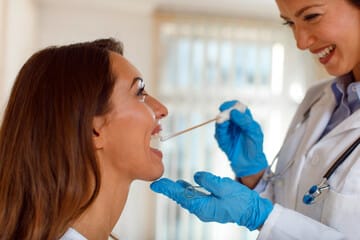
These medical uses for saliva include:
Saliva can also be used as a testing substance as a potential substitute for blood testing. Although diagnostic testing using saliva is relatively new, it is a growing technology (source).
You can even buy a saliva analysis kit for yourself on Amazon (see saliva analysis kit here).
What are the effects of saliva on natural sable brushes?
There is actually a lot interesting speculation about how saliva interacts with hair. For example, saliva could be used in the treatment of male-pattern baldness (e.g., hair loss) (source). In South America, some Columbian farmers believe that cow saliva can cure baldness (source).
However, I have not been able to find any direct scientific studies that investigated whether saliva (directly taken from your mouth) has an effect on the integrity or quality of hair in humans or animals.
The general sense is that saliva may have detergent like properties. More details below.
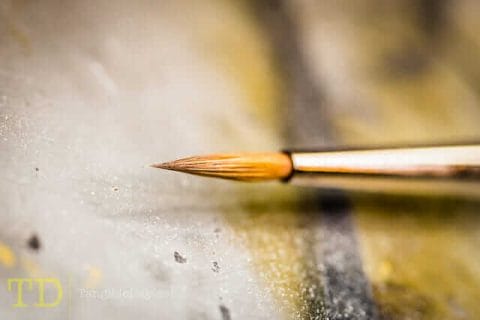
I am not surprised by the lack of data regarding the topic of saliva and hair, or rather, how saliva might act on paint brushes.
How many miniature painters are there in the World?
And of this population, how many miniature painters actually use saliva on their brushes, either through licking or other application?
Not many is my guess.
We will have to do some more research and perform logical deduction.
I think you’ll be surprised and interested in what we found.
Time to wear the lab coat….
When you’re trying to answer a hypothesis, or a question, that has no specific answer in the world, you have to make a logical deduction. We need to gather other bits of evidence to make an educated guess about what is happening.
For this article, to keep things simple, we can assume two things about saliva and its possible effect on brush hair:
Assumption 1: Saliva acts on the bristles in a mechanical fashion.
Assumption 2: Saliva acts on bristles at a molecular or cellular level
In both assumptions, there is plenty of data that we can investigate.
You may be wondering if there’s a difference between animal hair used in brush assembly and human hair (since you’re using your human saliva). Although structurally, human and animal hair may differ in construction or pigmentation, at the foundational organic level, they are made of the same protein, keratin (source).
What is the mechanical effect of saliva applied to a sable paint brush?
Saliva is slimy, foamy, and sticky with binding properties when dry.
These attributes can be useful for brushes. Here’s why:
We observe that following saliva application, brush hairs look and feel smoother in our fingers. The texture is slippery, and the slimy feeling is the saliva’s lubrication at work. This lubrication is useful because it helps “slide” out the dirt and debris that might be stuck on bristle filaments.
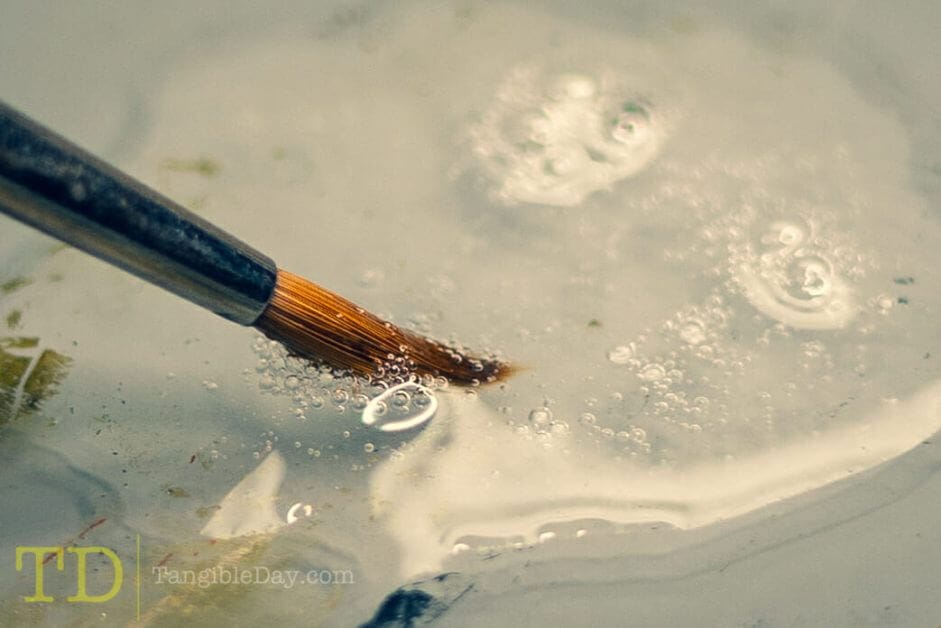
As the saliva works its way through the hairs, the greasy, slippery properties allow those dried paint bits to come out when the brush is further rinsed in water or agitated.
Foam is also a useful feature of saliva. This is based on the established mechanical property of many soaps and detergents that use foam.
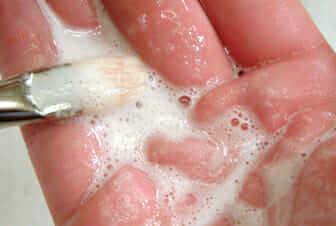
The air bubbles in foam work to “shake-out” dirt and debris out of clothing fibers or other surfaces (e.g., you wash your car with foam soap). It’s also why good hair shampoos produce a lot of foam when you wash your hair in the shower (source). Thus, the foam in saliva may be evidence that saliva is a really good clean agent in brushes.
As the saliva dries, the residual yucky material left behind continues to maintain the bristles’ shape. To miniature painters, these mechanical properties of saliva on brush tips is beneficial.
Certainly, saliva is useful and popular for many professional miniature painters for maintaining brush shape, and is easily accessed at a moment’s need (e.g., brush licking).
Based on anecdotal observation and a few other circumstantial bits of evidence, it is likely that saliva won’t damage your sable brushes simply through its physical properties.
Of course, if you bite the bristles with your teeth, then that’s a different story.
Overall, I think we can conclude that the 1) lubricative, 2) foamy, and 3) sticky mechanical properties of saliva are great for brush cleaning and bristle shape maintenance.
(See an article about the potential dangers of brush licking)
How about the chemical and molecular effects of saliva on sable brush hair?
There are two things about saliva that might act on hair at the molecular or cellular level. Hair is primarily made of keratin, a protein that your body produces. Because hair is mostly composed of protein, we can make further logical speculations using biology.
Are there any properties of saliva that might act on hair protein, particularly keratin?
In a healthy person, saliva has a nominal pH level of 7.2 to 8.4. Therefore, saliva is generally a neutral or slightly-alkaline (i.e., a base) in solution. It is possible that saliva may change pH throughout the day, becoming more acidic or basic, but deviations from the healthy range would warrant additional medical attention. In which case, you might not consider painting your miniatures or caring for your brushes a top priority.
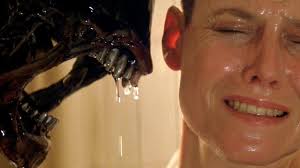
Taken together, I might take a guess that saliva will not damage your miniature brushes through extreme acidic or alkaline action. This is something I have noticed a few people on the internet might have incorrectly claimed. Saliva alone will not hurt natural brush hair.
There are several enzymes in saliva, but none of them are specific for breaking down protein in hair (this is good for brushes). The key enzymes in saliva are amylase, lysozymes, lingual lipase, and salivary kallikrein.
In fact, without even going into too much data, you might have already noticed that if you got hair in your mouth (from whatever reason) it’s pretty tough and resilient.
Hair, in general, is hard to digest. Cats form hairballs because as they groom, which is hair-licking, the hair they swallow doesn’t get destroyed by the body (source).
Overall, I would conclude from this information that saliva contains no adverse properties that could hurt the natural hair in brush bristles. Of course, your experience might tell you otherwise, but consider all the abusive things we do with brushes. We shake them, jam them in dirty soapy water, and dip them in paints that contain who-knows-what chemicals.
Summary of Potential Effects of Saliva on Paint Brushes
- Saliva can lubricate brush bristles and aid in brush cleaning
- Saliva foam may have a real and useful cleaning action through air bubble action
- The sticky properties of saliva can be useful for maintaining bristle shape, especially after saliva evaporation
- The chemical properties of saliva from a healthy person should not have a significant effect on hair integrity, which suggests it is harmless to natural hair brushes
- Salivary enzymes do not degrade keratin in animal or human hair, and should have no effect on brushes
Conclusion
Saliva alone should have no adverse effect on natural hair brushes, including expensive sables. In fact, saliva may even provide several tangible benefits, including detergent-like properties, that may be useful in brush care and maintenance*.
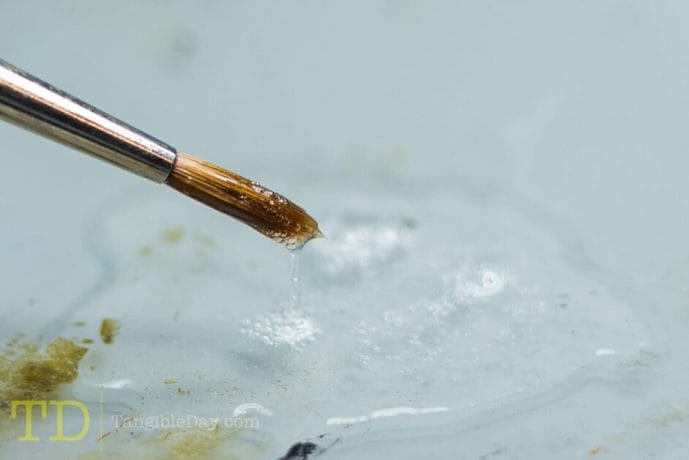
Alternatives to Saliva
Good news.
There are brush soaps available and formulated specifically for brush cleaning and maintenance.
They are versatile compounds that remove debris and dirt, and keep brushes from splaying apart.
If you’re grossed out by saliva, then give these ready-made brush care products a try. The most popular and highly-recommended brand is The Master’s Brush Cleaner & Preserver. For more information about how to keep your brushes in great working order, check out this simple brush-cleaning guide.
(*Disclaimer: We are not advocating you lick your brushes. Follow your brush manufacturer’s instructions for proper brush care and maintenance. If you choose to use saliva with your brush care and maintenance routine, please consider maintaining sanitary conditions during application.)
Happy Painting!
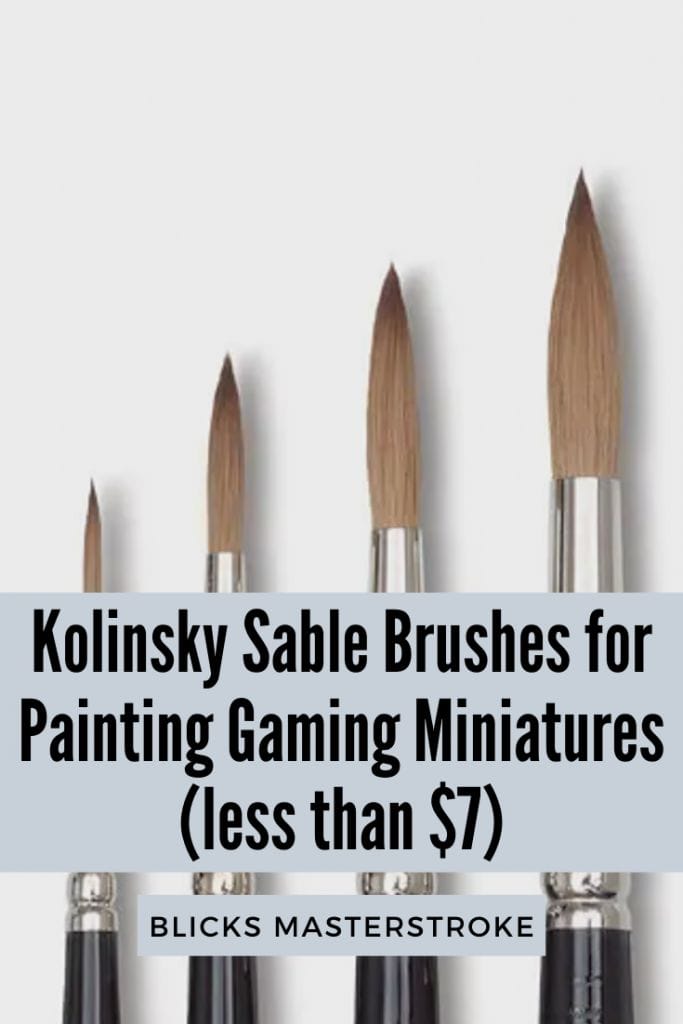


Tangible Day on YouTube (Miniatures and More!)

I love it! Great research. I always lick my paint brushes. I am more concerned if Tamiya Acrylic Olive Drab is bad for me, not necessarily if my saliva hurts my brushes!